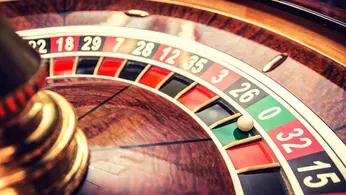
July 10, 2024
Understanding House Edge in Casino Games
READ TIME: 3 MIN.
From cards shuffling to the roll of the dice and spinning of the roulette wheel, one thing stands true with all casino games. In the end, the casino operator always wins. After all, the casino is a multibillion-dollar business, and not a charity organization throwing away money to players.
Like any other business, casinos have an effective business model to guarantee their profitability. That means the odds of winning are stacked in the casino's favor compared to your odds of winning regardless of the games you choose. That's popularly known as the house edge and bettors need to understand how it works to develop an effective betting strategy.
What's the house edge?
The house edge simply refers to the percentage representing the expected gain of an operator in the long run. For instance, a casino game with a 2% at Betway means that the operator will make a $2 profit for every $100 wagered in this game. It's essentially a statistical concept that indicates the results after many rounds of the game are played to level out the variance.
It is crucial to note that short-term luck may occur, meaning that casino players can still win despite the house edge. Conversely, you can also lose more stake than the expected percentage. However, the actual results get close to the statistical expectation as the number of wagers placed increases.
The role of probability in casino gaming
To understand how the house edge works in legal casinos like Betway, you need to understand the basics of probability. Every outcome in a casino game has a chance of happening, dictated by the rules of the game and its physical properties like the number of slots on a roulette wheel. The house edge is related to these mathematical probabilities.
By paying out at slightly lower odds than the true winning odds, casino operators are guaranteed a profit margin. For example, there are 37 pockets (18 black and 18 red) in European roulette, but a bet on specific numbers pays out 35 to 1, but the true odds stand at 1 in 37. The discrepancy is how the casino gets an edge over its customers.
Casino games and their house edges
Different casino games vary in their house edges and smart bettors should look for games with the lowest house edge. Here are common casino games and their house edge:

Strategies to mitigate the house edge
While all casino games feature a house edge, players can leverage different strategies to mitigate it:
● Learn basic strategy: When playing games of skills like blackjack and poker, you need to understand basic rules and popular strategies to considerably reduce the house edge.
● Pick the right games: Choose games that have the lowest house edge like European roulette or baccarat.
● Place the best bets: Depending on the available bets on a casino game, select bets that have the lowest house edge. For example, the pass-line bet features a significantly low edge in craps compared to any of the seven bets.
● Stay away from side bets: Most side bets have a high house edge compared to the main bets.







